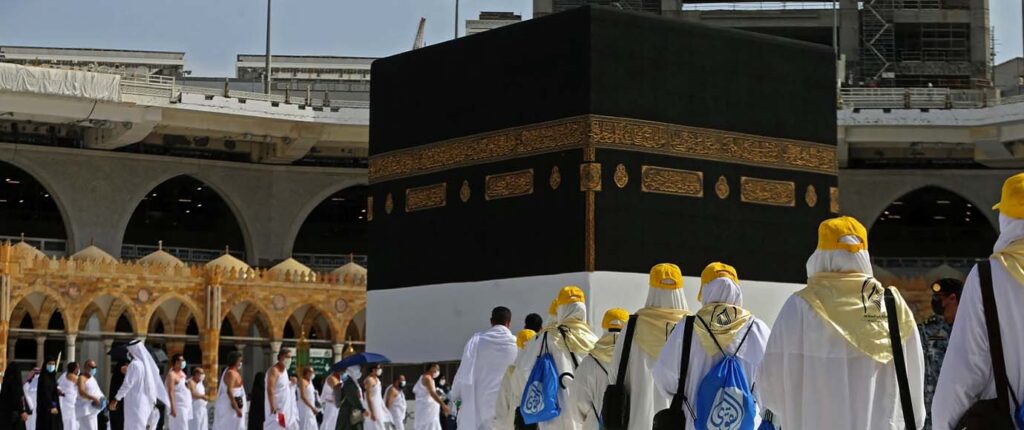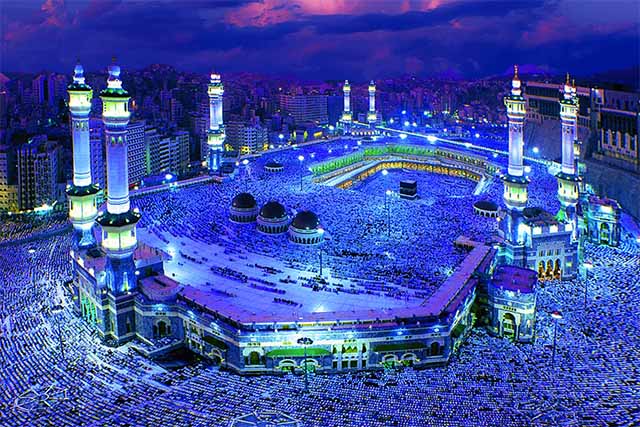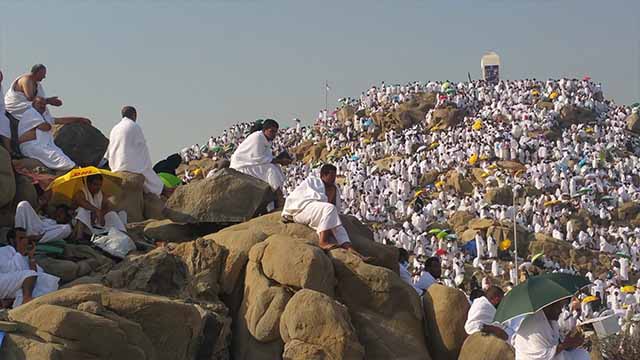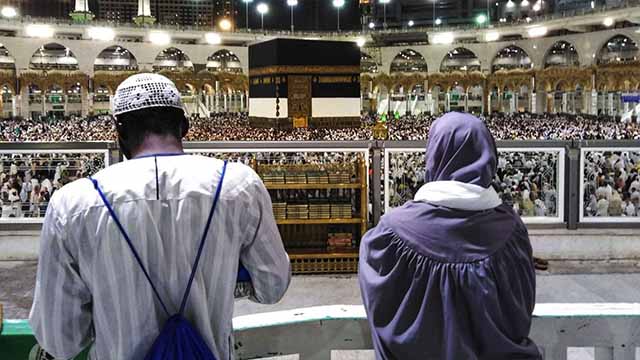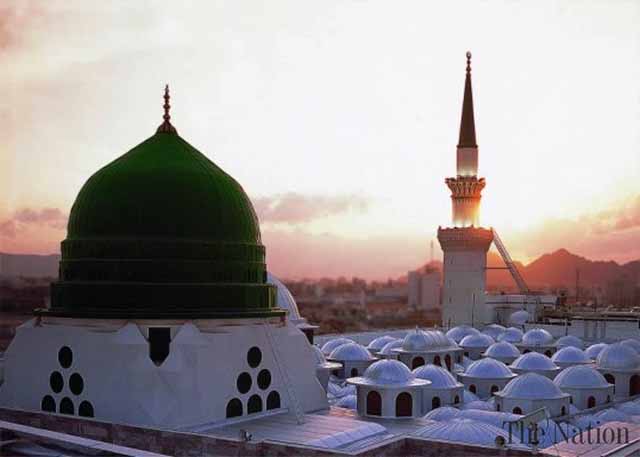Hajj packages in India
Hajj is an Islamic religious pilgrimage to Mecca, Saudi Arabia and before the COVID pandemic was attended by 1 to 2 million pilgrims annually.
- The dates for the Hajj are 17 to 22 July*.
- The pilgrimage takes place from the 8th-13th days of the twelfth and final month in the Islamic calendar.
- The date of Hajj is eleven days earlier each year because the Islamic calendar is eleven days shorter than the calendar used in the western world.
Umrah packages in India
Umrah is a pilgrimage to Mecca that can be undertaken at any time of the year. Umrah can be:
- combined with the Hajj (called Umrat al-tammatu) or
- taken independently of the Hajj (called al-Umrat al mufradah)
Saudi Arabia Hajj and Umrah packages in India Regulations
Saudi Arabia Ministry of Health Advice
Requirements and recommendations for entry visas and vaccinations for the Hajj and Umrah are issued annually by the Saudi Arabia Ministry of Health (MoH).
- Hajj is limited to citizens and residents from within the Kingdom of Saudi Arabia.
Hajj and Umrah are physically demanding. You should consider postponing Hajj and Umrah packages in India if you:
- are over 65 years
- have a health condition such as heart, kidney or lung disease or diabetes
- have a health condition affecting your immune system
- have cancer or a terminal illness
- are pregnant
- are younger than 12 years
Vaccines
You should have a pre-travel consultation at least 6 to 8 weeks before you travel. Before you travel for Hajj and Umrah packages in India it is recommended that you:
- are up to date with your childhood vaccinations such as diphtheria, tetanus and polio; and measles, mumps and rubella (MMR)
- get the recommended and required vaccinations for Saudi Arabia
- get seasonal influenza vaccine
Before you Travel
Travel Insurance
Comprehensive travel insurance is strongly recommended for all pilgrims. Please see the travel insurance page for more information.
General Fitness
You should try to be physically fit for Hajj and Umrah packages in India.
- The pilgrimage involves walking a few miles every day and can be strenuous, even for the fittest individual.
- Improving your overall mobility and fitness is recommended at least 4 to 6 weeks before you depart.
If you are older or have a known health condition, you might benefit from having a general health check up with your GP. Any health conditions that you have should be well controlled before you travel. You should also consider having dental and eye health check-ups before you go.
Travelling with Medication
- Renew your prescription and make sure that you have enough medicines to cover the duration of your trip.
- A letter from your GP listing your current medicines may prove useful for immigration purposes.
- All medicines should be kept in their original packaging and carried in your hand luggage along with a printed copy of your prescription.
- Some medicines, such as morphine based drugs, might be restricted in Saudi Arabia.
- You should check on the FCDO website for more information.
Delaying Your Period
If you want to delay your period (menstruation) during Hajj, this can be done by taking hormonal medication.
- Try to discuss this at least 2 to 3 months in advance of your pilgrimage with a healthcare practitioner such as your GP, practice nurse or pharmacist.
First Aid Kit
- You should take a first aid kit with you.
During Travel
- Drink plenty of water because you can become dehydrated during travel.
- Wash your hands frequently, especially before eating and drinking and after using the toilet to minimise your risk of becoming unwell.
- For further information see food and water precautions
Travelers’ Diarrhoea
Travelers’ Diarrhoea is common for pilgrims during Hajj.
- It is mainly spread through food and water that has been contaminated with germs.
- You can also become infected if you don’t wash your hands before eating or drinking and touching your face because you might have touch surfaces by germs.
- If you get travellers’ diarrhoea, you can become dehydrated. If you are very young, older or have underlying health problems, then you can dehydrate very quickly.
Preventing dehydration if you get travelers’ diarrhea is important. You can do this by:
- drinking plenty of fluids such as water and diluted fruit juices
- rehydration solutions such as packets of oral rehydration salts sold in pharmacies can also be used
- safe drinking water must be used
You should get medical attention if:
- you have more than 6 bouts of diarrhoea in a day
- there is blood or slime (mucous) in your diarrhoea
- you are vomiting and cannot keep any fluids down
- you have a fever
- you have severe stomach pain
Respiratory Infections and MERS CoV
Respiratory tract infections, such as Middle East Respiratory Syndrome Coronavirus (MERS CoV) can spread easily in crowded areas.
You can reduce your risk of catching and spreading respiratory infections by following the advice on the Respiratory Hygiene.
Mosquito Bite Avoidance
It is important to try and prevent mosquito bites. When mosquitoes bite, they can spread diseases such, dengue fever, leishmaniasis, chikungunya and Rift Valley fever.
Climate Related Health Risks
Temperatures can be greater than 30°C during the day in Saudi Arabia even during the winter and cause a risk to everyone of:
- sunburn,
- sunstroke
- heat exhaustion, heat stroke
- dehydration
Arriving in the country a few days early will allow you to acclimatize to the hot conditions before undertaking Hajj. To avoid high daytime temperatures, you can perform some rituals between sunrise and sunset.
It is important to:
- rest when possible
- keep yourself hydrated with safe liquids
- seek shade where possible (light colored umbrellas can be used to create shade)
- wear good quality footwear to protect your feet
- use a protective sunscreen factor 15 or higher
Blood-borne Virus Transmission Associated with Shaving
Unclean razor blades can transmit blood-borne infections, such as hepatitis B and HIV. To lower your risk, you should:
- avoid sharing shaving blades or razors during preparation for Hajj rituals
- use a licensed barber at officially designated centres and avoid street barbers
- ask the barber to wash their hands before shaving you
- check your barber is using a new disposable single use razor; or ask them to use your personal razor
- avoid all other kinds of razors, including the ones which have their blades changed after every shave
- ensure used blades are disposed of safely after use in designated containers
Accidents and Injuries
Accidents and injuries can occur during the Hajj pilgrimage.
- Road traffic vehicle accidents are a potential hazard as pilgrims may have to walk long distances through, or close to, heavy traffic and busy roads.
- Minor injuries to the feet are common. You should try to wear comfortable, good quality protective footwear.
- If you have diabetes or any condition causing poor circulation to your lower limbs, you must pay particular care and attention to the health of your feet.
When you return home
Once you return home, you should contact your GP by phone or NHS24 as soon as possible if you develop:
- fever
- respiratory symptoms
- other symptoms compatible with COVID-19
You should make sure that you mention your travel history. Both COVID-19 and MERS-Cov could be a cause of your symptoms.


